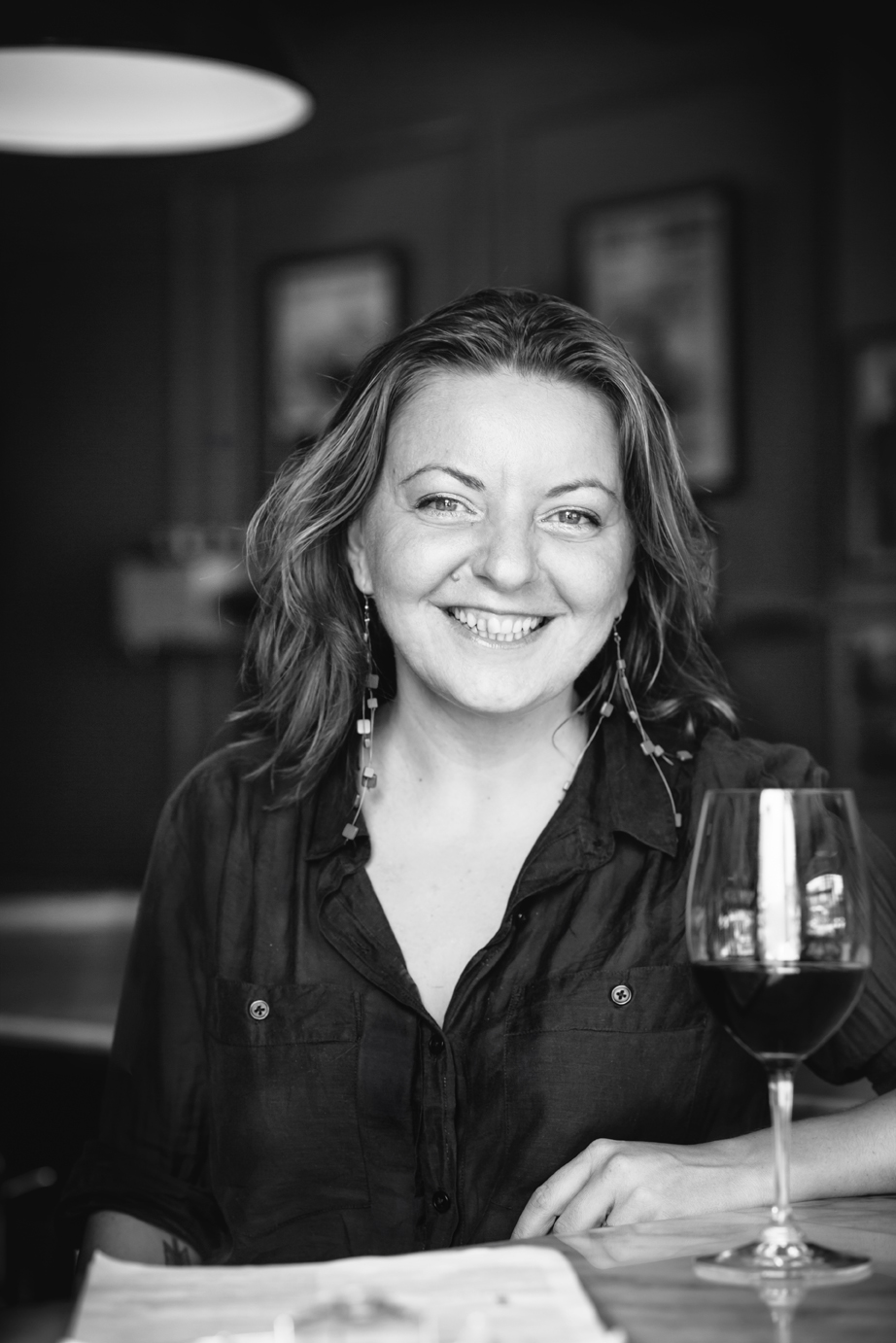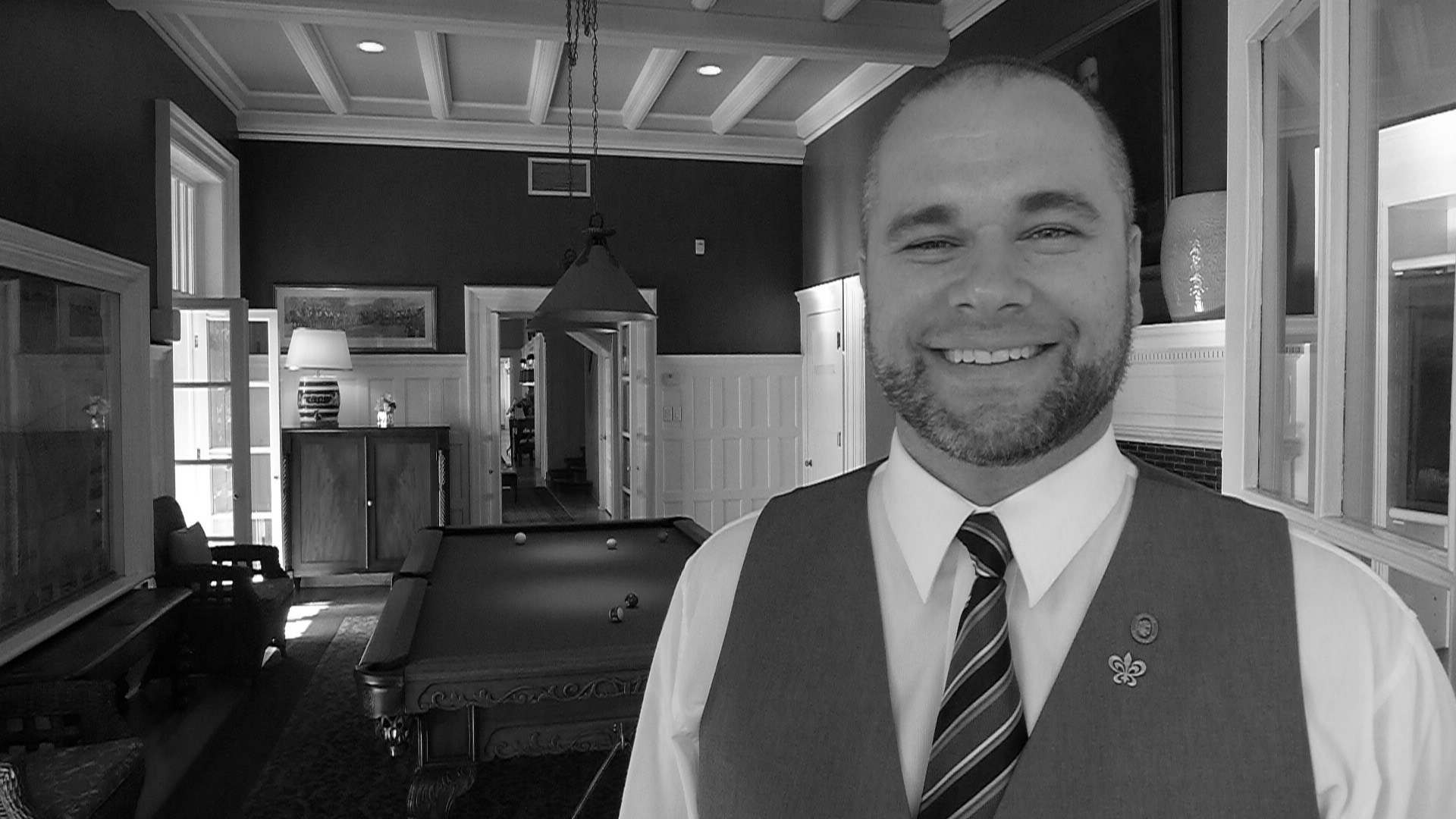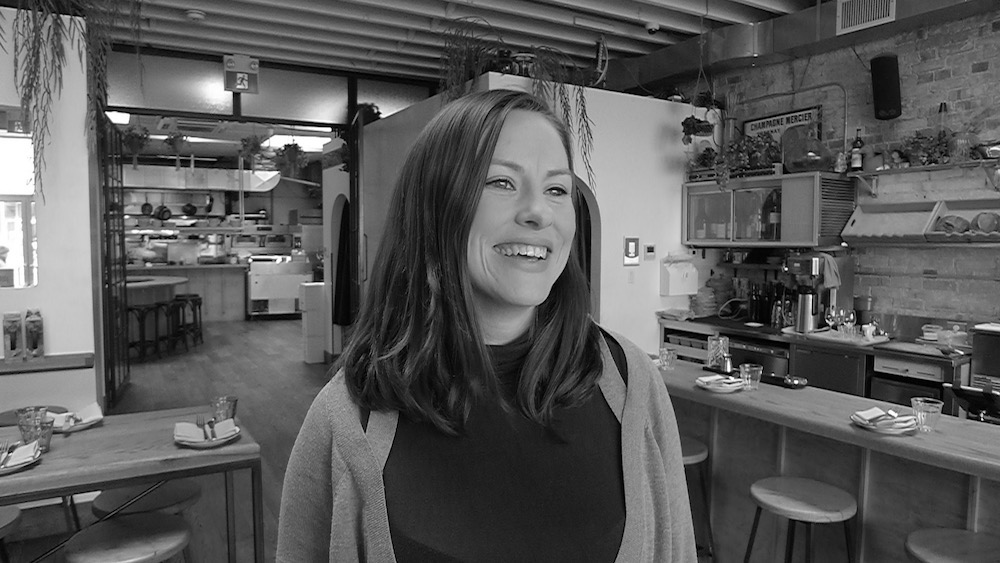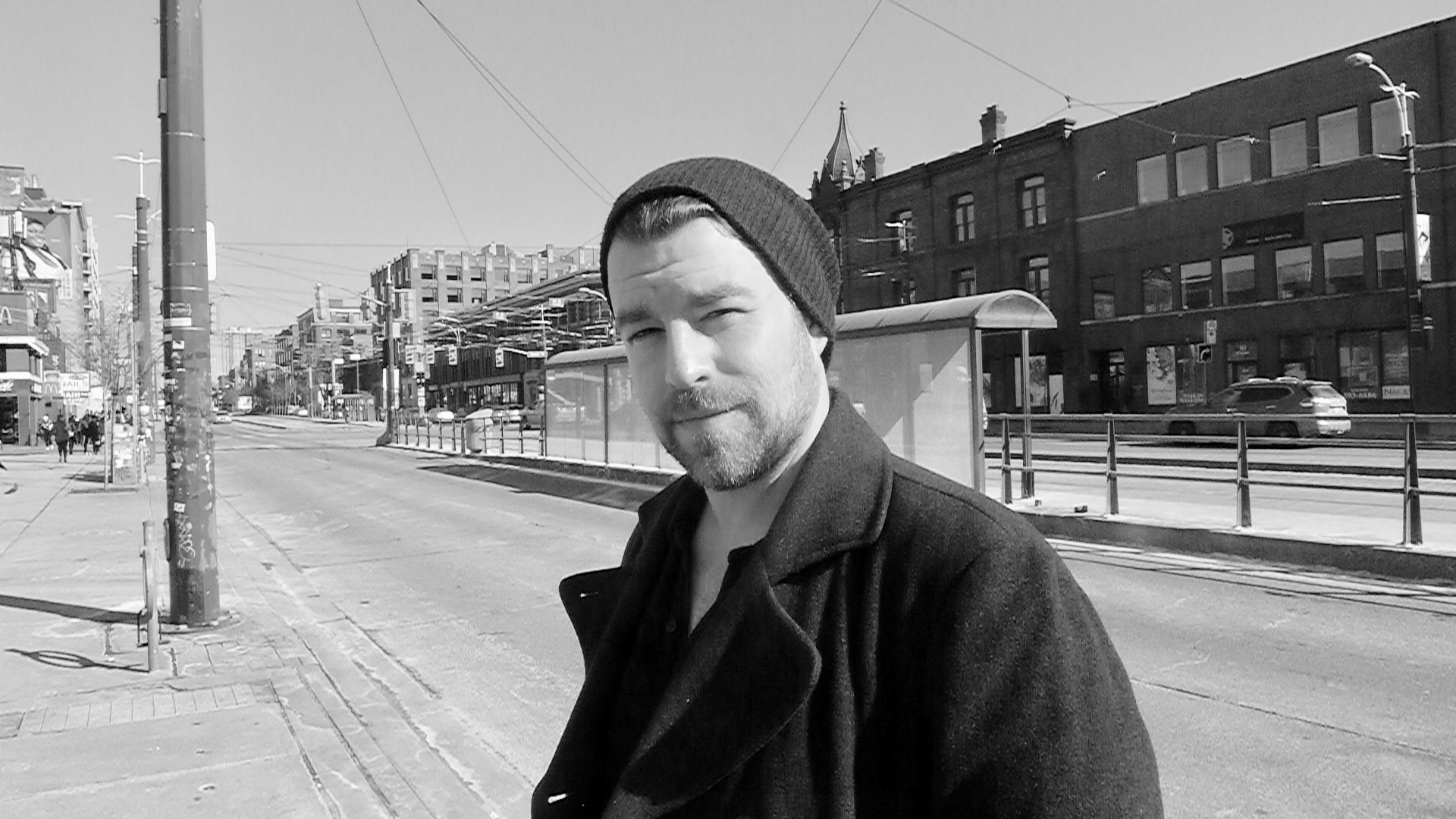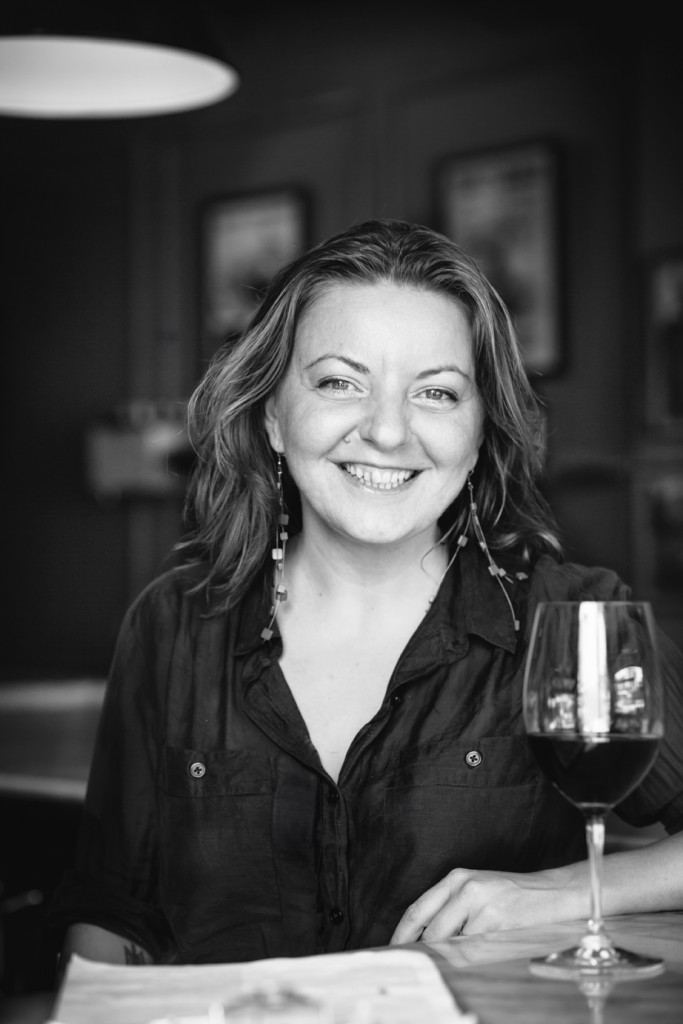
Picture by Colleen Nicholson www.dropthefish.com
In the second of a third (and very popular) series, we interview some of the most talented up-and-coming Sommeliers in Ontario. A few years back I was flicking through the pages of a locally published periodical and noticed that when it came to Sommeliers it was the same names that seemed to pop up over and over again. I was also becoming gradually cognisant of the fact that we more established wine folks were well and truly “losing our edge” to these young blood Sommeliers.
Being well aware of the depth of new talent that was out there I finally decided to get together with a couple of fellow Toronto Sommelier “Old Guard” (Anton Potvin and Peter Boyd) to assemble a line of questioning that would give us an entertaining insight into the minds of these rising stars.
Last year we put Pizza Libretto/Enoteca Sociale Sommelier Lesa LaPointe through the wringer in one of our most popular articles thus far. We followed this with an interview with the Owner/Wine Geek of Parkdale’s Café Taste, Mr. Jeremy Day, then with Zinta Steprans, who at that point was Sommelier at Toronto restaurants L’Unita and Malena but is now at Soho House, Carolyn Balogh of Abcon International Wines, Christopher Sealy of Midfield fame, then a debacle of an interview (my fault) with the mercurial Ms. Sheila Flaherty, ex of Mercatto and Pearl-Morisette, Café Boulud‘s Jordan Alessi, Lawrence‘s Sommelier Etheliya Hananova, and then Momofuku‘s Service Director Steve Sousa.
This week it’s the turn of the lovely, warm, generous, knowledgable lady that is Svetlana Atcheva, Mistress of Wines at Toronto’s Enoteca Ascari.
Good Food Revolution: So Svetlana, what are you up to?
Svetlana Atcheva: Slinging wine at Ascari Enoteca in Leslieville
GFR: Describe what you do at Enoteca Ascarii?
SA: I write the wine list and sell wines that I like and believe in. At Ascari, we try to support the people that produce these wines and the wine agents that import them. We try to stimulate consumer demand for real wine by engaging customers, starting a conversation and doing our best to explain the difference between these wines and many others that might not ever be touched by human hands, but are more readily available.
GFR: And how would you explain the wine program there?
SA: The wine list is pretty big for a 35 seat wine bar. I try to structure it in a way that provides a broad variety of flavor profiles to satisfy the tastes of customers, but we do it on our terms – with wines that are expressive and authentic. There are also always a few difficult bottles that stump me thrown in the mix. I find I have a better chance of understanding them by sharing them with others and getting to know the wine through a varied set of palates – both industry and layman. It’s a list that changes often.I strive to keep it dynamic and use it as a tool in educating both customers and ourselves.
A visiting friend of one of our wine agents payed us a big compliment recently by saying that “At Ascari they ask you what are you in the mood for or what you like, then they give you what they want and you love it.” That was great to hear.
GFR: And how many agents do you deal with?
SA: Anywhere between 15-20. I am currently rather excited as in the past month I have stumbled on 3 new intriguing portfolios, so the roster will most likely expand.
GFR: What makes a good agent in your mind?
SA: Real knowledge of their product, an open mind, professionalism and informed opinions about wine are a requisite. Sales pitches rarely work with me.You can always tell when you are dealing with agents that truly care about wine.I also try to support the people that are always trying to bring wines that are interesting and exciting, despite all the obstacles that are thrown a wine agent’s way. Honesty and inquisitiveness are two other qualities that I highly value. I don’t remember when was the last time an agent poured me something and I didn’t pour anything for them – usually wines that I want to discuss. Wine agents are some of the best tasters out there and I like tasting side by side and learning. Willingness to taste tea with me is big bonus.
A huge wine agent pet peeve on the other side – if once you’ve met the rest of the staff, you ignore them or don’t say “Hello” when you come in, you’re pretty much signing your own death sentence.
GFR: How aware of wine were you whilst growing up? Were you around wine from an early age?
SA: I come from Eastern Europe, so I practically grew up on yoghurt and on wine, diluted with water. Wine has always been around and a just another part of life. I remember my family always stopping by vineyards to pick up a couple of demijohns of wine from their favorite grower, before the growers gave it to the local co-op for blending. Or being sent to the corner store to fill a few empty bottles – with specific instructions of which tap I need to draw from.
GFR: When do you feel children should be introduced to the wonderful world of wine?
SA: Don’t really have an opinion on that one yet. I was fed wine diluted with water from an young age and have turned out ok. I have a couple of friends with young children that love having 2 sips of sparkling and I find that perfectly reasonable.
GFR: When did you first decide that you would like a career in wine?
SA: It was not a conscious decision at all. I kind of just stumbled on it.
GFR: So who or what gave you your first insight into the world of wine?
SA: I was fortunate to be an assistant manager at Terroni Balmoral when John Szabo came on board and I worked alongside him for a year. He is definitely the first person that aided and abetted in enriching my Eastern-European wine sensitivities and opening my mind to a new critical view and understanding of the wine world.
GFR: The Sommelier world is notoriously full of pretentious males… mostly… has being a lady been a help or a hindrance to you?
SA: I would say neither. I don’t really think about it in terms of gender roles. I believe that as long as you are knowledgeable and committed to what you do, there shouldn’t be any problems and you can break all sorts of stereotypes. I haven’t had any problems so far.
GFR: Which wine regions have you had the opportunity to visit?
SA: Not many. All over Italy and some parts of Germany. And of course – Niagara and PEC.
GFR: Have you ever thought about making your own wine?
SA: Yes, of course, who doesn’t. It’s very much like the restaurant business – everybody wants to open one. But I don’t believe at this point I possess the discipline that’s required to make wines of a certain quality and authenticity. And I am the kind of person who wouldn’t settle for less.
GFR: And where would you like to make wine (in a pipe dream)?
SA: I don’t have any particular overall place in mind. There are wonderful places all over the world, but as far as I am concerned – it’s about the specificity of the location, the vineyards themselves and what speaks to you, personally. Having said that, if I have to choose, it’ll probably be somewhere in the Old World – at least for now.
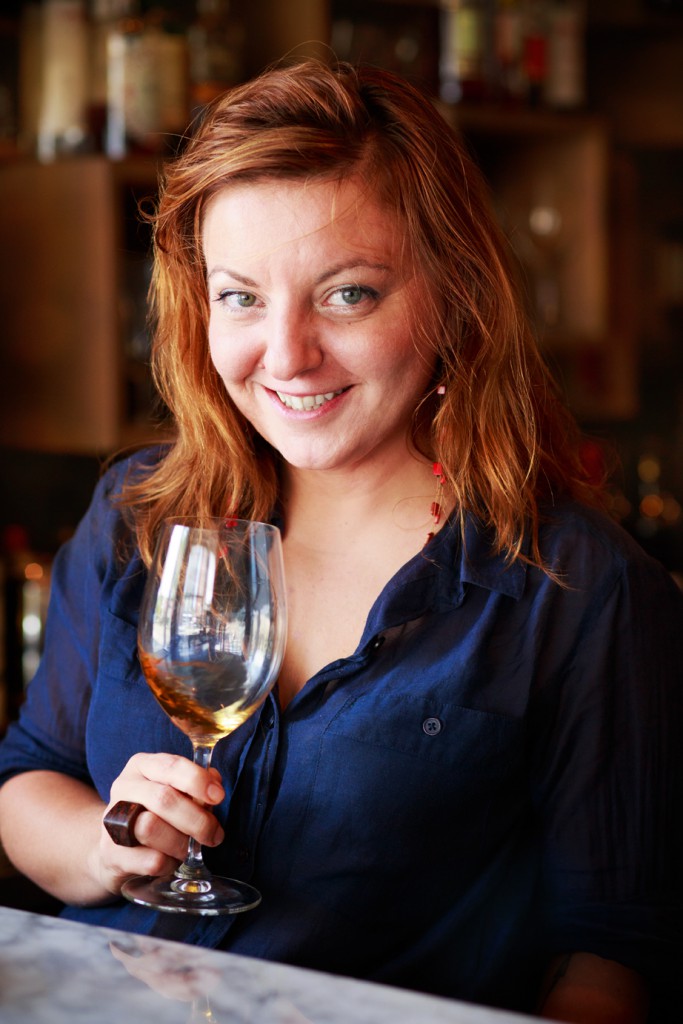
Picture by Colleen Nicholson www.dropthefish.com
GFR: Are Winemaker’s dinners more trouble than they are worth?
SA: I’d say so. There is a time and place for everything and I am not putting the classic winemaker dinner down. But I do believe that it rarely achieves the purpose of exposing customers to the wines and their makers in an accessible and understandable way. At Ascari, we started an Anti-Winemaker’s dinner series this spring (not in order to be contrarian). We have the winemaker in the house for the evening, open all their wines by the glass and require no prior commitment from our customers. They can engage or not, they can choose to taste all the wines or stick to the normal wine list. They can choose to chat about them with the winemaker or not, or discuss the weather if they’d like. It’s up to them. What we are trying to do with this series is make people think about the wines as something way more than what is in your glass – the end product of the continuous labour of people working the vineyards and in the cellars.And to give them an opportunity to meet these people in an informal atmosphere. We pretty much turn the restaurant into the dining room of the winemaker for a night. It has been received amazingly well.
GFR: At EA do you have to work as a Manager as well as a Sommelier?
SA: Yes, I do.
GFR: Do you prefer managing bottles or people?
SA: Depends on the day, I guess – who happens to be more impetuous and how patient I am. Sometimes, it’s people; sometimes. it’s bottles.
GFR: What have been your career highs and lows?
SA: Career highs – being able to tell the difference between the botrytis bunch rot and sour rot by looking at the grapes. That came after eating a lot of them on purpose and understanding it on a physiological level.
Another big high, probably the biggest was not having my totes re-sorted (because they were finally up to standard)at the end of every row by the Mexican crew during a very difficult and complicated pick (they had been going through my totes and resorting almost every one for a day)
Everytime all the pieces fall in place and I truly comprehend what is going on in a certain bottle in a particular moment of time – that is always a high.
Being able to have discussions with winemakers from around the world on the ins-and outs of their practices and enriching my knowledge of the big picture by learning details that are particular to their respective places and grape varieties.
Career lows – can’t think of any – probably calling a 2003 Nuits St. Georges from Henri Gouges a cool vintage Grenache followed promptly the next day by calling Chateau Rayas Ch d P 1995 an exceptionally-made NW Pinot. But those were both HUGE lessons. It’s how you look at it, no?
GFR: Who is, in your mind, a role model for Sommeliers??
SA: I can’t speak for others, but I, myself have always had and continue to have mentors rather than role models – Francois Morissette and Jeff Connell. I have learned from many people and I continue to learn a lot through conversations with sommeliers with knowledge and experience far greater than mine. Personally, I do find that my best lessons and insights into wine have come from winemakers, people working in the vineyards and wineries or non-industry connoisseurs with exceptional palates and focus. They are all actually listed in a Thank You note on the winelist at Ascari.
GFR: Tell us about your WORST customer ever?
SA: I don’t have a specific occurrence in my mind. I feel that no matter what, if you listen to what people are actually saying, it is easy to turn them around.
Drunk people with a sense of entitlement and customers who are disrespectful to the staff are at the top of my WORST list. At Ascari, we try to be diplomatic and patient, but have very low tolerance for that kind of stuff.
GFR: Sommeliers famously have Sundays off… What’s your idea of a perfect Sunday?
SA: 90% of the time I work on Sundays and I am off during the week. An idea of a perfect day off would involve hiking, reading in the park, visiting an old friend that I never get a chance to see, going dancing – or – on the opposite end – going to a vineyard, walking the vineyard rows and helping out with whatever needs to be done in the cellar.
GFR: Where are your favourite places to dine in Toronto.. perhaps tell us a hidden treasure of your lovely city?
SA: That’s easy. Hands down – The Atlantic on Dundas. I cannot comprehend why there is no line-up in front of that place. The food, the atmosphere, the gracious hospitality – everything about it is exceptional.
Also Catch on St. Clair is absolutely fantastic and Dukem – a small Ethiopian place on Danforth and Donlands.
GFR: Do you cook yourself? What’s your favorite dish to cook these days?
SA: Yes, I do – when I have time. Hasn’t happened much lately. Favorite dish right now would be a Bulgarian yoghurt soup called Tarator – with cucumbers, walnuts and dill.
GFR: And have you had any cooking disasters?
SA: Haven’t burned down the house, if that’s what you’re asking, but I have melted a phone charger. And if the question is in terms of the quality of the dish – yup, many a disaster, especially when baking.
GFR: How do you feel about Canadian wines?
SA: I have always been a supporter of Canadian wines, as I feel it’s a personal privilege to live in a vine-growing country. Unfortunately, I have rather limited experience with BC, NS, NB and Quebec wines due to their somewhat limited availability in Ontario so I can only have an informed opinion of this province.I feel good strides have been made in terms of wine quality and if we continue exploring what grows well in these soils and we are honest about the results, we will be in the process of slowly developing a world-class wine region and hopefully, a wine culture along with it.
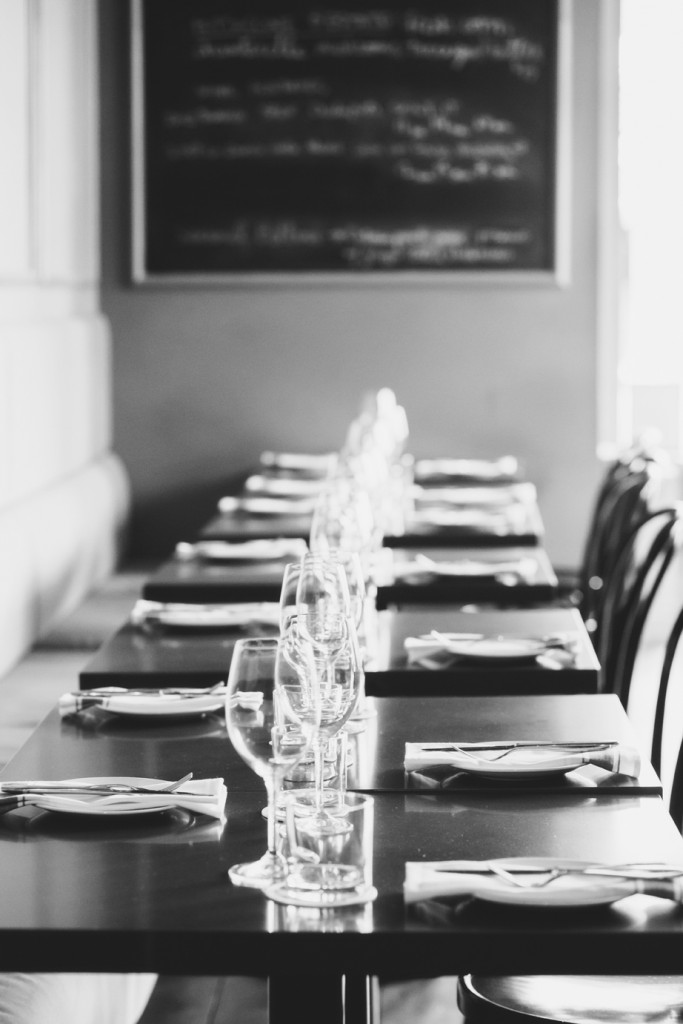
Picture by Colleen Nicholson www.dropthefish.com
GFR: Your Wine Killah Monday nights have been a superb success with the industry? How did that come about?
SA: It was Erik’s (one of the owners) idea and then it grew and became its own beast.The initial push came from what I call the Hardie (as in Norman Hardie) boys – they still are some of our biggest supporters. They wanted to drink all the “crazy Svet wines” , talk and ‘”nerd out” about them and have fun in general; then came the restaurant people and the word just spread. People buy different bottles and share them with their friends and with strangers sitting next to them. Bartenders and servers normally have small heart attacks looking at the amount of glasses that are being used at the same time, and trying to keep track of what’s where.What I am really excited about is that these days we also have a solid “normal people” rush – that are intrigued by the wines and the 1/2 off is prompting them to engage and ask even more questions of the staff. And of course, the music always adds an extra layer of fun.
GFR: How do you feel about Toronto as a wine city?
SA: Surprisingly sophisticated despite multiple barriers to being able to access great wines (due to the LLBO/ LCBO monopoly). It does mean, however, that great wine experiences come from places and people who are highly motivated to providing them, whereas the mainstream remains pretty conservative and safe.
GFR: What would you be doing if you were not a Sommelier
SA: A physicist – quantum mechanics has always fascinated me and I find the mathematical equations that develop on that level exciting.
An archeologist (that was the reason I came to Canada and what I studied in university) or a secret service agent (childhood dream – that’s why I started studying languages at a very early age);
GFR: What does your Mother wish you were doing?… I know that mine probably wishes I was a Doctor…
SA: My mother is a lawyer, so at least that. An international policy maker or a member of the diplomatic corps. Or the president of the country. Eastern European mothers are not known for having small ambitions.
GFR: I know that you have many non-industry friends… how do they feel about what you do for a living?
SA: I’m pretty sure they feel closely to how I feel about what they do. I have very good friends that are teachers, lawyers, musicians, painters, choreographers, dancers, bankers, UN workers and social workers. Some of them love wine, some of them drink PG spritzers and some don’t drink at all. We don’t talk any more about wine and restaurants than we do about their jobs. It’s always interesting to listen to their stories and learn about the world through their experiences.
GFR: What are your thoughts on blind tasting?
SA: I like blind tasting a lot. It exposes all sorts of misconceptions I might have acquired and fills knowledge gaps. I like deductive reasoning a lot, but an educated guess is still just a guess. It feels great when you nail it, but I learn more when I am wrong and can subsequently where and why I steered wrong.
GFR: What’s your current favourite wine region?
SA: Don’t have one. I normally get obsessed with a wine bottle itself or a producer. If I am to name a region that’s given me my latest obsession would be the Nahe. And of course, the Loire is always on my mind.
GFR: Where else can one get decent wine out in the east end? Or is it just you?
SA: Oh no. There is so much going on. Skin+Bones – just 5 min down the street – has extensive offerings btg; Danny Patano across the street from us at Glas has always focused on an “Ontario only” wine list and is currently building it up to a great representation of local wines.
And Goods and Provisions’ wine list is short, but always bang-on. That is in case you can convince yourself to have wine instead one (or 3)of Aaron Beaudoin’s cocktails.
GFR: When it comes to wine is there anything that you feel is overrated?
SA: Uniformity and wines that taste as what somebody thinks they should. I don’t really care where the wine comes from and what “style” it is; but lack of verve, expressiveness and honesty always leave me cold and wanting.
I call wines like that – “shrug of the shoulder” – nothing bad with them, nothing good or memorable either.
GFR: What is your favourite wine pairing right now? A dish on your current menu?
SA: Fried Zucchini blossoms with Basil Crema and Mosse Anjou 2011.
GFR: Okay… three pairings with me on the spot?… but with… cartoon characters
SA: I am an ESL-er and cannot really properly contextualize these cartoons, as I am completely unfamiliar with them, apart from Homer Simpson, but if I have to venture a guess:
GFR: Homer Simpson
SA: An everyday wine that means well and has bravado, but it is what it is and ultimately a product of its environment: Baco Noir. Or a pitcher of cheap draft, I guess.
GFR: Jessica Rabbit
SA: Nebbiolo, vinified in the modern style – classically beautiful, but overdone, sweetened and smoothed by new oak – a cartoon among watm-blooded people
GFR: Archer
SA: I’d say any showy wine that projects a confident and engaging exterior, but has narrow mid-palate, little texture and simple finish. Micro-oxygenated Bordeaux or Krug and OJ.
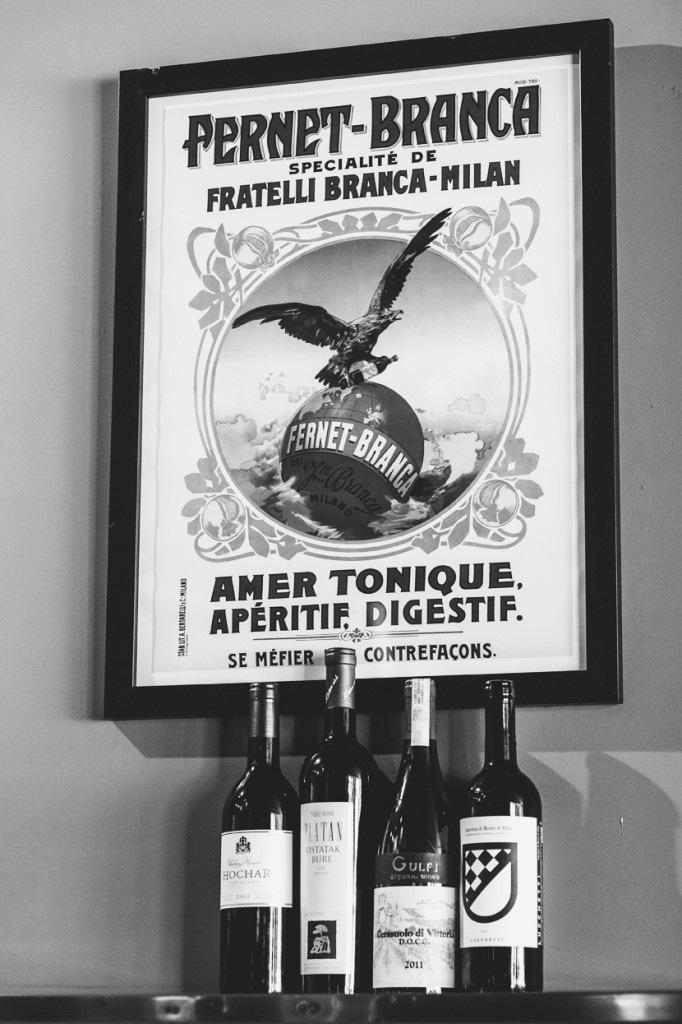
Picture by Colleen Nicholson www.dropthefish.com
GFR: Do you often drink beers or spirits?
SA: Spirits – not very often, but I am starting to learn more about them. Beer I love. The problem is it fills me up fast.
GFR: What is your least favourite part of your job as Sommelier? For me it was doing inventory…
SA: Yes, inventory is definitely right up there. Running out of ink while printing wine lists that need to go out that day. Meeting Annette’s deadlines.
GFR: What is your weapon of choice when it comes to a corkscrew?
SA: Whatever is in my pocket – just a normal double-hinged guy.Some are better than others obviously.
GFR: What are your thoughts on natural wines?… I feel that there is more shit out there in that segment than anywhere else.
SA: Ok, that one really gets me going, but I’ll try to keep it short. I know there is no precise definition of that term, so it is harder to critique something where there is no clear definition of what it stands for. I, myself, enjoy them immensely when they are well-done. I feel there is a level of synergy, cohesiveness and like-mindedness in these wines that can be tasted – across the good producers, that is. I find most of them rarely talk about “natural wine” per se, but about ideas, observations and practices that ultimately allow the wines to be more expressive and interesting. The two best ways I heard this approach summarized are by two different winemakers. One calls it “Get out of the way” approach and the other one said that when he crafts his wines he’s trying to ask questions from his surroundings/ vineyards.
Having said that: yes, you’re right – there is a lot of shit out there: wines that are badly-faulted and sometimes this is being passed as the character or the terroir of the wine. However, the question if that kind of shit is better or worse than faultless simple plonk begs to be asked. But that is an extensive and complex topic, because at that point issues of agricultural and commercial production and its effect on the environment should also be part of the discussion.
GFR: Sommeliers often have quite the increased tolerance for wine/booze. What is your limit?
SA: I’d say it’s definitely above average, but it isn’t necessarily all that impressive compared to other people that I know.
GFR: Have you ever been “cut off”?
SA: No. I cut myself off – either by taking a cab or falling asleep, depending on where I am.
GFR: How many wines do you taste in a week?
SA: Depends on the week. I’d say between 10 to 60, 70
GFR: Do you spit or swallow?
SA: Again depends on the wine. I’d say it’s 50-50. Some wines you just can’t spit. Others – you don’t necessarily want to swallow.But I learn different things about the wine from the two practices, so I try to keep it even.
GFR: What’s your “house” wine at home?
SA: Varies. Random bottles from the LCBO, tasting samples, that kind of thing. Sometimes I buy cases of affordable wines that I really enjoy.
GFR: Do you keep a cellar at home?
SA: I don’t have a proper cellar as I live in an apartment. My “cellar” is spread around the basements/cellars of a couple of friends with proper storage conditions.
GFR: Most remembered glass of wine ever?
SA: Cabernet Franc ‘Cuvee Madeline’ 2010 from PM – tasted from tank last summer. It was one of those moments – if somebody pressed the pause button, everything went still and then they slapped your face in slow motion (just a clarification: the wine didn’t slap me, but it felt like a ‘pay attention’ moment. The purity, complexity, seamless deliciousness and world class of a wine so close to home got me right in the gut.)
A glass of 1992 Coulee de Serrant from Nicolas Joly that had been open for 48 hours is forever imprinted in my taste memory. And just recently I tasted another two wines that I think I’ll be incapable of ever forgetting: 2000 Musigny Grand Cru by Jacques-Frederic Mugnier and 2007 Felsenberg Riesling by Donnhoff
GFR: What is your perfect glass (or bottle) of wine at the end of a crazy night at the restaurant?
SA: Varies. Normally a sparkling or a Riesling. Currently we can’t get enough of Hinterland’s 2012 Lacus Sparkling CF and the Chateau Musar Cinsault Rose.
GFR: And now the cheesy question Svetlana… If you were a grape varietal what would you be?
SA: I’d love to be a Chenin Blanc in the Loire – curious, expressive, striving and full of surprises, but I feel I have ways to go before I posses even a remote semblance of the serenity that Chenin has. Currently I am more of a weird Chenin+ Riesling cross. And if you ask the boys at BW wines, they’ll assure you, the wine that I’ll make would be best fermented in unicorn testicles, preferably by elves somewhere behind the Iron Curtain.
GFR: Svetlana, thank you for this insight into your world!

Edinburgh-born/Toronto-based Sommelier, consultant, writer, judge and educator Jamie Drummond is the Director of Programs/Editor of Good Food Revolution.
Peter Boyd has been a part of Toronto’s wine scene for over two decades. He has taught the Diploma level for the International Sommeliers Guild, and has been the sommelier at Scaramouche Restaurant since 1993. He also writes about wine, food and pop culture and raises show molerats for fun and profit. He’s also one of the most solid guys in the business.Trust this man. Seriously… he knows his shit and it TAKING OVER THIS CITY!
A well-known and much respected figure on the Toronto food and wine scene for almost twenty years, Potvin has worked in many of the city’s very best establishments including Biffs, Canoe, and Eau. In 2004 Potvin opened his incarnation of the Niagara Street Café, a restaurant that has gone from strength to strength year after year, with universal critical acclaim. Anton spends much of his time traveling and tasting wine and has been ranked highly in consecutive years of the International Wine Challenge. Anton is currently the General Manager/Sommelier of the newly opened Chase restaurant.

